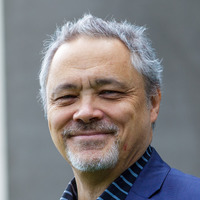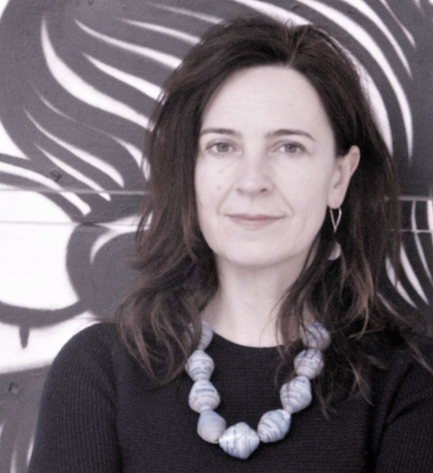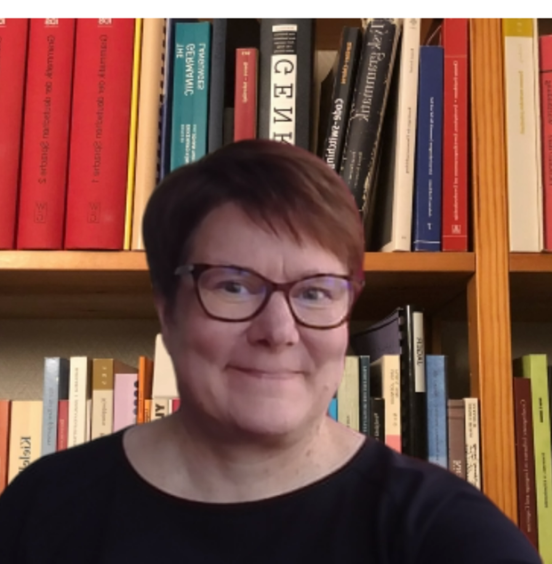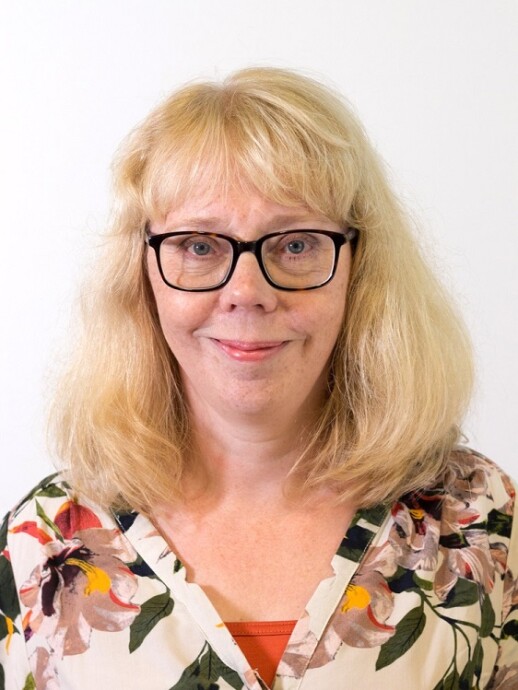Mats Fridlund
Associate Professor
University of Gothenburg

Mats Fridlund is Reader (docent) in Digital History at University of Turku and in History of Science and Ideas at University of Gothenburg. His research focus on science and technology studies, history of terrorism and digital humanities and he has held academic positions in China, Denmark, Finland, Germany, Sweden, UK and the USA. He just concluded the urban history research project “Things for Living with Terror: a Global History of the Materialities of Urban Terror and Security“ and is currently Principal Investigator of two digital humanities projects on Swedish terrorism: “Terrorism in Swedish Politics” and “The Cultural Imaginary of Terrorism”. He is born in Sweden where he studied engineering physics and history of science and technology at the KTH Royal Institute of Technology, from which Department of History of Science and Technology he received his PhD in 1999.
His current research primarily concern the history of terrorisms. An ongoing study focus on the development of urban terrormindedness, how cities and citizens since the 19th century have used various technologies to cope with different forms of man-made terror and terrorism. A second study investigates the materiality of non-state terrorism by investigating the role appropriation of engineering expertise and industrial technologies such as dynamite revolvers have played in the rise of modern revolutionary terrorism during the long 19th century. His research on the history of terrorism has been competitively awarded grants from national Swedish research financiers.
His other main research interest concerns digital history where he primarily focus on the use of digital humanities research methods within historical research. In addition to pursuing digital history research he is involved in organizational activities aimed at institutionalizing digital humanities within the Nordic countries.
Read more: Mats Fridlund | University of Gothenburg (gu.se)
Keynote-esitelmän abstrakti:
Global Dialects of Urban Terrormindedness: How Terrorism is Changing Cityscapes in the Global South and North
How have urban institutions and individuals struggled with everyday living in cities threatened by various forms of political terror? In my presentation I propose to understand this struggle through the historical development of various urban forms of terrormindedness that capture how urban societies learn to live with terror through an ‘posthumanist’ domestication of the cityscape’s materialities. At least three forms of modern terrormindedness can be discerned beginning with the interwar airmindedness that tried to help citizens and city dwellers cope with the future threat of aerial bombing warfare. This was followed by the Cold War nuclearmindedness that prepared cities for the threat of nuclear weapons and which beginning with the 1970s threats of ‘urban guerillas’ was replaced by an increasing terrorismmindedness.
My presentation will use historical and contemporary case-studies to discuss the emergence of different global ‘dialects’ of urban terrormindedness – different local urban vernaculars based on a common global grammar. My historical exposition focus on London, Berlin and Chicago, while the contemporary examples take from New York, Stockholm, Lahore and Tokyo thus discuss experiences from both Global South and North cityscapes that through traumatic terrorism events have been adapted to cope with terror as a part of everyday urban life.
Maria Kaika
Professor in Urban, Regional and Environmental Planning
University of Amsterdam

Maria Kaika is professor in Urban, Regional and Environmental Planning at the University of Amsterdam’s (UvA) Faculty of Social and Behavioural Sciences.
She holds a PhD in Geography from the University of Oxford and an MSc in Architecture and Planning from the National Technical University of Athens. She has held tenured posts at the Universities of Oxford and Manchester and visiting and honorary professorships in several European Universities. Currently, she is Director of the Centre for Urban studies and Chair in Urban Regional and Environmental Planning at the University of Amsterdam. She is recipient of the 2017 Jim Lews Prize for the most innovate academic publication (with L Ruggiero), and of the 2021 European Award of Excellence in Teaching in the Humanities and Social Sciences. Her research focuses on urban political ecology, the relation between economic crisis and environmental and housing marginalization, and the embodied politics of infrastructures.
Since 2010, she has been the co-editor in chief of the International Journal of Urban and Regional Research and sits on the Editorial Board of European Urban and Regional Studies and Human Geography. Her work has received funding from national and international research councils and organisations (including the British Academy, and EU Framework and Marie Curie programmes).
She is author/editor of: Turning Up the Heat: Urban Political Ecology for a Climate Emergency (2023 Manchester University Press; with R Keil, T Mandler, Y Tzaninis); Class meets Land: The Embodied History of Land Financialization (with L Ruggiero; in print 2024 University of California Press); The Political Ecology of Austerity (2021, Routledge, New York; with R Calvario and G Velegrakis); Urbanizing degrowth: Five steps towards a Radical Spatial Degrowth Agenda for planning in the face of climate emergency (2023 Urban Studies Special Issue with Varvarousis, A, Demaria, F and March, H); In the Nature of Cities: urban political ecology and the metabolism of urban environments (2006 with N Heynen and E Swyngedouw; Routledge, London); and City of Flows: Modernity, Nature and the City (2005; Routledge, New York).
***
Maria Kaika on väitellyt tohtoriksi maantieteestä Oxfordin yliopistossa ja suorittanut arkkitehtuurin ja yhdyskuntasuunnittelun maisterin tutkinnon Ateenan kansallisessa teknisessä yliopistossa. Hänellä on ollut vakituisia virkoja Oxfordin ja Manchesterin yliopistoissa sekä vierailevia ja kunniaprofessuureja useissa eurooppalaisissa yliopistoissa. Tällä hetkellä hän on Amsterdamin yliopiston (UvA) kaupunkitutkimuskeskuksen johtaja ja kaupunkien alue- ja ympäristösuunnittelun professori. Hän on saanut vuonna 2017 Jim Lews -palkinnon innovatiivisimmasta akateemisesta julkaisusta (yhdessä L Ruggieron kanssa) ja vuonna 2021 Euroopan humanistisen ja yhteiskuntatieteellisen opetuksen huippuosaamispalkinnon. Hänen tutkimuksensa keskittyy kaupunkien poliittiseen ekologiaan, talouskriisin ja ympäristön ja asumisen marginalisoitumisen väliseen suhteeseen sekä infrastruktuurien keholliseen politiikkaan.
Vuodesta 2010 lähtien hän on ollut International Journal of Urban and Regional Research -lehden päätoimittaja ja kuuluu European Urban and Regional Studies and Human Geography -julkaisun toimituskuntaan. Hänen työnsä on saanut rahoitusta kansallisilta ja kansainvälisiltä tutkimusneuvostoilta ja -organisaatioilta (mukaan lukien British Academy sekä EU Framework ja Marie Curie -ohjelmat).
Hän on kirjoittaja/toimittaja useissa teoksissa (ks. englanninkielinen abstrakti).
***
Publications list https://independent.academia.edu/mariakaika
Web page https://tinyurl.com/http-mariakaika-uva
Open Access -julkaisuja:
Austerity: an Environmentally Dangerous Idea
“Don’t call me resilient again”: the New Urban Agenda as Immunology
The refugees’ right to the centre of the city: City branding versus city commoning in Athens
Between the frog and the eagle: claiming a ‘Scholarship of Presence’ for the Anthropocene
Keynote-esitelmän abstrakti:
Urbaani poliittinen ekologia (UPE) – epistemologiasta ilmastohätätilan käytäntöön
Tässä puhevuorossa keskityn äskettäin julkaistuun kirjaan: Turning Up the Heat: Urban Political Ecology for a Climate Emergency (Kaika, Keil, Mandler and Tzaninis (toim.), 2023) vahvistaakseni urbaanin poliittisen ekologian (UPE) merkitystä ontologisena, epistemologisena ja metodologisena interventiona, joka voi auttaa kohtaamaan tämän vuosisadan sosiaalisia ja ympäristöllisiä hätätilanteita.
Kaupunkipoliittisen ekologian tutkimus horjuttaa ”perinteisiä” käsityksiä ”kaupungeista” ja ”luonnosta” erillisinä ontologisina kokonaisuuksina ja kehittää menetelmiä, joiden avulla voidaan tutkia, miten asutuksen tuotanto on metabolisesti sidoksissa asukasvirtoihin, mutta myös ekologisiin prosesseihin, jotka ovat enemmän kuin inhimillisiä.
Tunnistaen UPE:n rikkaan henkisen historian: a) Keskustelen siitä, miten UPE pyrkii ylittämään tutkimuksen jakaantumisen yhteiskuntatieteisiin ja luonnontieteisiin; ja b) identifioimaan UPE:n viime aikoina esiin nostamia ontologioita ja epistemologioita, jotka vievät alaa eteenpäin. Nämä käsittelevät:
1. Laajennetun kaupungistumisen uusia muotoja
2. Tiedon tuotannon paikallisia muotoja
3. Ihmisen sosioekologisten ja taloudellisten käytäntöjen ylittämistä
4. Kaupungistumista ja ilmastonmuutosta koskevan politiikan, poliittisten käytäntöjen ja akateemisen keskustelun hankalaa rajapintaa.
Väitän, että UPE:n uusien ontologioiden, epistemologioiden ja menetelmien tutkiminen ei ole vain akateeminen harjoitus, joka edistää alaa. Se tekee myös akateemisen tutkimuksen poliittisesti merkitykselliseksi ja osoittaa uusia toimintamuotoja. Kuumeneva planeetta on nouseva todellisuus, johon tutkijoiden on reagoitava.
Leena Kolehmainen
Professori, saksan kieli
Helsingin yliopisto
Leena Kolehmainen on saksan kielen professori Humanistisen tiedekunnan Kielten osastossa Helsingin yliopistolla (2023-). Hän on kiinnostunut yksilöiden, yhteisöjen ja instituutioiden monikielisyydestä. Leena Kolehmainen puhuu teemalla kaupunkien monikielisyys.
Lue lisää: Leena Kolehmainen — Helsingin yliopisto (helsinki.fi)
Paula Sjöblom
Dosentti, yliopistonlehtori, kotimaiset kielet ja niiden sukukielet
Turun yliopisto
Paula Sjöblom on työskennellyt suomen kielen yliopistonlehtorina kieli- ja käännöstieteiden laitoksessa vuodesta 2011 alkaen. Vuosina 2008 – 2011 hän oli Turun kauppakorkeakoulun suomen kielen ja viestinnän lehtori, ja tätä ennen v. 2007 – 2008 Helsingin kauppakorkeakoulun suomen kielen ja talouselämän viestinnän lehtorin virassa. Paula Sjöblom väitteli tohtoriksi Turun yliopistossa keväällä 2006 aiheenaan suomalaisten yritysten nimet. Väitöskirjassaan hän sovelsi nimistöntutkimukseen teoreettisia näkökulmia kognitiivisesta kielentutkimuksesta ja systeemis-funktionaalisesta kieliteoriasta.
Sjöblom on mukana suomalaisten kuntasloganien kielellisiä ja retorisia valintoja selvittävässä, Turun yliopiston ja Helsingin yliopiston tutkijoiden yhteishankkeessa. Hanke käynnistyi syksyllä 2020 Kunnallisalan kehittämissäätiön rahoituksella. Yhteistyökumppanina on myös Suomen Kuntaliitto.
Keynote-esitelmän abstrakti:
Monikielinen kaupunki
Leena Kolehmainen & Paula Sjöblom
Kaupungit ovat monikielisiä paikkoja, joita kielentutkimuksessa lähestytään monesta eri näkökulmasta ja monin eri menetelmin. Havainnollistamme esitelmässämme kielimaisematutkimusta, jossa tutkijat ovat kiinnostuneita visuaalisesta monikielisyydestä eli julkisessa kaupunkitilassa näkyvästä kielenkäytöstä: katukyltit, mainoskyltit, nimikyltit, valotaulut, tarrat ja graffitit avaavat näkökulmia kielten ja yhteiskunnan välisiin suhteisiin, kieleen demokratian välineenä, julkisen tilan kielelliseen esteettömyyteen, vallan käyttöön, kaupallisen toiminnan ideologioihin ja kulttuuriseen muistiin.
Raportoimme esitelmässämme ajankohtaisesta Turussa toteutetusta kielimaisemaprojektista, jossa olemme tutkineet kriittisesti kielivalintoja ja kielten käyttöä erilaisissa julkisissa sisä- ja ulkotiloissa (mm. katunäkymistä käräjäoikeuteen, terveydenhuoltoon ja museoihin). Näissä tiloissa esiintyvät esimerkit, joissa esiintyy alasaksaa, arabiaa, englantia, espanjaa, italiaa, japania, kiinaa, kurdia, latinaa, norjaa, persiaa, ranskaa, ruotsia, saksaa, suomea, tanskaa, turkkia, ukrainaa, pistekirjoitusta ja selkokieltä, havainnollistavat kaupunkisuunnittelussa ja kuntapalveluissa tarvittavaa kieliasiantuntijuutta.

